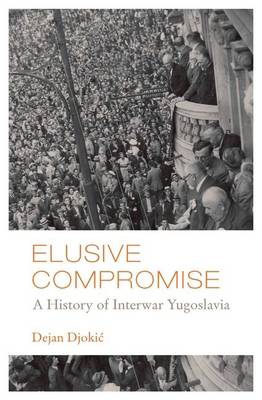
Wil je zeker zijn dat je cadeautjes op tijd onder de kerstboom liggen? Onze winkels ontvangen jou met open armen. Nu met extra openingsuren op zondag!
- Afhalen na 1 uur in een winkel met voorraad
- Gratis thuislevering in België vanaf € 30
- Ruim aanbod met 7 miljoen producten
Wil je zeker zijn dat je cadeautjes op tijd onder de kerstboom liggen? Onze winkels ontvangen jou met open armen. Nu met extra openingsuren op zondag!
- Afhalen na 1 uur in een winkel met voorraad
- Gratis thuislevering in België vanaf € 30
- Ruim aanbod met 7 miljoen producten
Zoeken
€ 128,45
+ 256 punten
Omschrijving
Before Tito's Yugoslavia, which disintegrated violently in the 1990s, there was another Yugoslav state. This book is about the original, interwar Yugoslavia (1918-41), and is based on the author's research in Croatian, Serbian, British and American archives and on extensive study of published sources. Unlike other scholars, Dejan Djoki argues that the period can be best understood through an analysis of attempts to reach a Serb-Croat compromise. Historians have long recognised the Croats' rejection of state centralism, but Djoki shows that many Serbs had also accepted federalism by the mid-1930s. Djoki challenges the popular perception of the period as one of constant conflict between Serbs and non-Serbs and argues that the political mismanagement of the country paved the way for the radicalisation of the war years (1941-5) and the subsequent communist takeover. Although primarily a study of conflict management in a multinational state, the book provides an insight into the effects of politics on 'ordinary' people. Elusive Compromise places Yugoslavia in the context of a Europe-wide struggle between democracy and dictatorship, and contributes to an understanding of the dissolution of Yugoslavia and other multinational states.
Specificaties
Betrokkenen
- Auteur(s):
- Uitgeverij:
Inhoud
- Aantal bladzijden:
- 320
- Taal:
- Engels
Eigenschappen
- Productcode (EAN):
- 9780199326389
- Verschijningsdatum:
- 22/11/2007
- Uitvoering:
- Hardcover
- Formaat:
- Genaaid
- Afmetingen:
- 3 mm x 3 mm
- Gewicht:
- 4 g

Alleen bij Standaard Boekhandel
+ 256 punten op je klantenkaart van Standaard Boekhandel
Beoordelingen
We publiceren alleen reviews die voldoen aan de voorwaarden voor reviews. Bekijk onze voorwaarden voor reviews.











